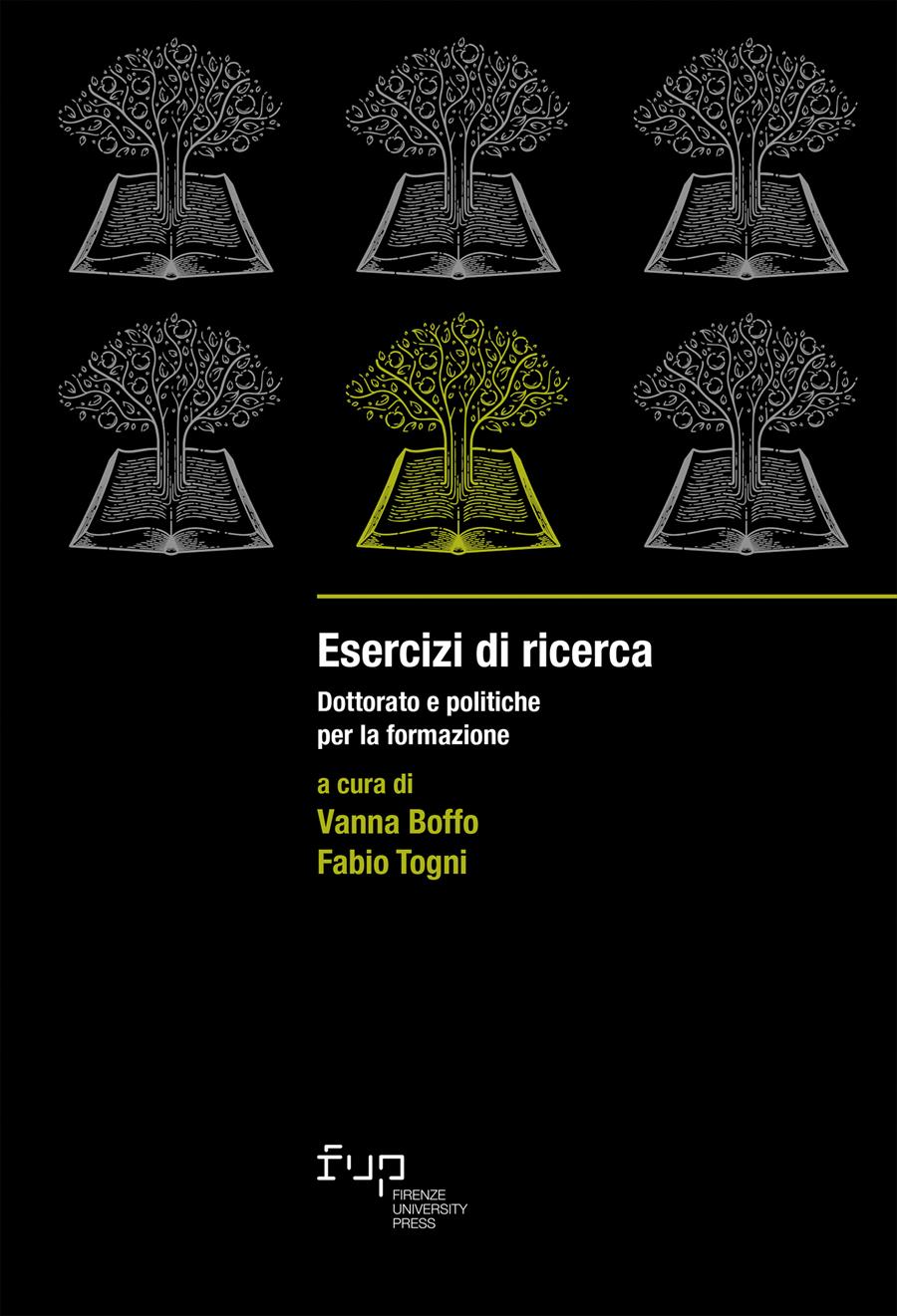- Esercizi di ricerca
- Edited by Vanna Boffo, Fabio Togni
Arte e meta-narrazione. Dalla produzione artistica ai modelli pedagogici personali, sociali e culturali
- Maria Laura Belisario
- © 2022 Author(s) |
- CC BY 4.0
- DOI: 10.36253/979-12-215-0081-3.23
The poster presented here collects data from the first year of a research aimed at investigating the models of thought that emerge from artistic performances from a point of view that is not only personal, but also social and cultural, in order to understand what art may tell us about the social and cultural contexts. A review of the literature has led to further investigate the concept of pedagogical model on the one hand and the potential of art from an educational point of view on the other. A pedagogical model is a model of thought that concerns attitudes and behaviors that guide the life of the individual and that is transmitted from generation to generation, from a personal, social and cultural point of view. These models are mainly manifested through symbolic language. Art gives life to a ‘potential space’ that allows the individual not only to become aware of his own representations of the world, but also to act concretely by transforming them. The study will then investigate the processes through which this happens, researching, through the words and narrations of the protagonists of the artistic experience, the models of thought emerging from the experience itself, and framing them within the social and cultural thought of reference. The methodology will be qualitative, with an eidetic approach and will adopt, as a strategy, the case study focused on the workshop of sound expression with natural objects called Orchestra della natura, managed by Daniele Delfino.
- Keywords:
- Art,
- Pedagogical Models,
- Social and Cultural Thinking,
University of Florence, Italy - ORCID: 0000-0002-4893-2048
- Antonacci, Francesca, e Francesco Cappa, a cura di. 2001. Riccardo Massa: lezioni su la peste, il teatro, l’educazione. Milano: Franco Angeli.
- Articoni, Angela, e Antonella Cagnolati, a cura di. 2020. La metamorfosi della fiaba. Roma: Tab edizioni.
- Bertolini, Piero. 2021 (1988). L’esistere pedagogico: ragioni e limiti di una pedagogia come scienza fenomenologicamente fondata. Milano: Guerini.
- Dallari, Marco. 2017. “La bellezza può essere un obiettivo educativo?” Encyclopaideia 21 (48): 1-4. DOI: 10.6092/issn.1825-8670/7414
- Langer, Susanne K. 1965. Sentimento e Forma. Milano: Feltrinelli.
- Madrussan, Elena. 2021. Formazione e musica: l’ineffabile significante nel quotidiano giovanile. Milano-Udine: Mimesis.
- Mortari, Luigina. 2011. Cultura della ricerca e pedagogia: prospettive epistemologiche. Roma: Carocci.
- Riva, Maria G. 2010. Il lavoro pedagogico come ricerca dei significati e ascolto delle emozioni. Milano: Guerini.
- Vygotskij, Lev S. 1987 (1934). Il processo cognitivo. Torino: Bollati Boringhieri.
Chapter Information
Chapter Title
Arte e meta-narrazione. Dalla produzione artistica ai modelli pedagogici personali, sociali e culturali
Authors
Maria Laura Belisario
Language
Italian
DOI
10.36253/979-12-215-0081-3.23
Peer Reviewed
Publication Year
2022
Copyright Information
© 2022 Author(s)
Content License
Metadata License
Bibliographic Information
Book Title
Esercizi di ricerca
Book Subtitle
Dottorato e politiche per la formazione
Editors
Vanna Boffo, Fabio Togni
Peer Reviewed
Number of Pages
278
Publication Year
2022
Copyright Information
© 2022 Author(s)
Content License
Metadata License
Publisher Name
Firenze University Press
DOI
10.36253/979-12-215-0081-3
ISBN Print
979-12-215-0094-3
eISBN (pdf)
979-12-215-0081-3
eISBN (xml)
979-12-215-0082-0
Series Title
Studies on Adult Learning and Education
Series ISSN
2704-596X
Series E-ISSN
2704-5781
